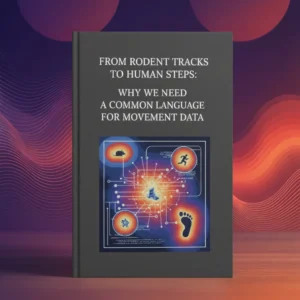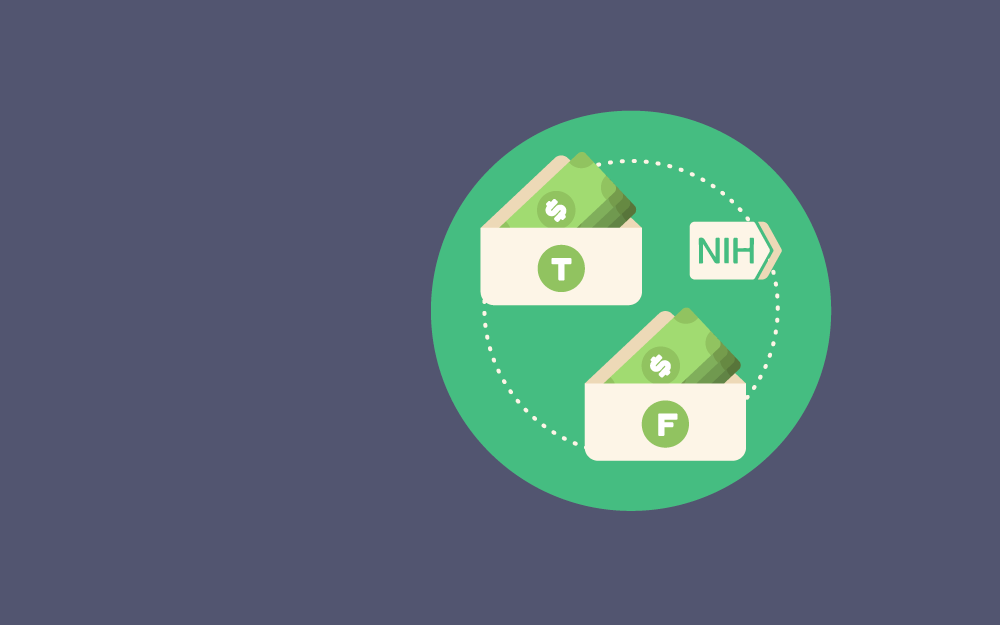

It is important for potential grantees to learn about the National Institutes of Health (NIH) grant funding programs. Every year, the NIH, through its 27 different institutes and centers (ICs), invests $31 billion in research and development (R&D) by awarding a range of grants to more than 300,000 scientists and researchers. Apart from nurturing R&D and bringing in biomedical advances, the purpose of the NIH grants is to simplify the process for new and/or early-stage investigators as well as for senior research scientists to acquire funding via various requirements for grants.
Here is how the NIH categorizes the scientists:
The major NIH grant awards are categorized into the following series:
Each grant program, told apart by several activity codes, illustrates for you a structure of various funding types, mechanisms, and research support at other institutions and facilities. This article, however, is intended to provide you with a general, easy-to-understand overview of Research Training and Fellowships (T & F series) grants.
Research Training (T series) and Fellowships (F series) fall under the category of Training and Career Development Grants that provide research experience to students and scientists at different career stages.
F awards are individual-specific fellowship awards supported by the NIH for the training of undergraduate, graduate and postdoctoral scientists who seek institutional research training opportunities through the Ruth L. Kirschstein National Research Service Award (NRSA) program.
The purpose of the Fellowship awards program is to provide support and encouragement to scientifically useful research training experience for the NIH Intramural Research Program.
Individual Development Plans (IDPs) as a trainee in F series awards provide career planning and management assistance for promising applicants that display potential of becoming a committed researcher in accordance with NIH’s mission. The fellowship award programs provide opportunities for trainees to be groomed professionally in the company of experienced scientists to become invincible in both academic and non-academic careers. (Jacob and Lefgren, 2011)
If you do not have the U.S. citizenship or a permanent resident (PR) status with a valid registration receipt card (green card) at the time of the award, you will not be considered entitled to a fellowship grant because scientists, new or early-stage Investigators on temporary or student visas are not eligible to apply.
These grants are divided into fellowship awards (F Series) which are designed for individual researchers and training awards (T Series) which in turn are available for senior investigators or organizations.
F Series – the individual fellowship grants & the maximum number of years are as follows:
The purpose of this fellowship program is to train promising pre-doctoral candidates who aspire to become clinical/physician scientists. You must be registered in a dual-doctoral degree program to be able to apply for F30.
The purpose of this fellowship program is to provide research training to talented pre-doctoral candidates showing a promising potential to become independent research scientists with a doctoral degree.
The purpose of this fellowship program is to provide research training to talented post-doctoral individuals showing promising potential to become an independent investigator in accordance with the NIH Institutes and Centers’ mission
Writing an impressive grant application — which is not only in absolute compliance with NIH policies and regulations but also demonstrates your research proposal in the best possible manner — are three-quarters of your battle won. (Berg et al., 2007). You must start with a careful study of the SF 424 Application Guide as well as relevant funding opportunity announcements to know what your application for the individual fellowship should contain.
You are also required to submit a maximum of three reference letters along with the citation papers from the NIH-funded research in light of NIH public access. Make sure to have your references written beforehand in order to minimize the document clutter at the time of your application deadline.
There are several due dates NIH has in place for fellowship applications:
Consult with your organization to decide upon the application submission methods to see which of the preferred methods suits the team, i.e.,
When you apply and subsequently succeed in achieving the grant, these fellowships provide:
National Research Service Award (NRSA) T grants, or T series Training Grants, provide institutional support to nonprofit, local governmental institutes with capital resources to train and mentor pre-doctoral and post-doctoral research candidates for two to three years. Usually, senior investigators at research institutes apply for these grants because low-ranking faculty almost never apply for them. Trainee-level candidates expect their institution to provide training opportunities that enable them to practice and gain experience with the established research team and have sufficient expertise for an independent career later in the time.
The purpose of research training grants is to advance and improve scientific research conducts at NIH institutes and centers. During the training period duration, the research training plan – presented by the grant expectant – describes the quality, experimental design, and significance of pipelined scientific projects. If you are a Post-doctoral applicant, you will receive a certain stipend because post-doctoral candidates are not considered an employee. As a trainee, though, your stipend entitlement depends on the open positions under your program director.
If you’re planning to apply for any of the research training grants, you must possess U.S. citizenship or are a permanent resident with Alien Registration Receipt Card (green card) because researchers on temporary or student visas are not considered eligible.
T Series – the research training grants as follows:
The T32 training program works in many ways as the F32 individual fellowship program; It assists institutions to enroll selected individuals for pre-doctoral and postdoctoral research training in targeted, somewhat unexplored areas and groom them to have a career in health-related research.
The purpose of this training program is to support academic research training to create and groom highly trained personnel that in time will lead the biomedical and behavioral research for the betterment of humans and animals alike.
The T35 research training program supports pre-doctoral and post-doctoral training in selected embryonic scientific areas as well as short-term summer research training programs for undergraduates in institutional health faculties
Again, if you succeed in writing an impressive grant application, you are already more than halfway through your ordeal. You must start with a careful study of the SF 424 Application Guide as well as relevant funding opportunity announcements to learn what your application for research training should contain.
Successful research training grant applications are the ones where applicants could convince peer reviewers of the value of their research contribution with evidence to the welfare of humans as well as animals. Your application should readily convey your objective and research strategy bearing the clarity of your commitment, competence, and resources. (Pier et al., 2018).
There are a couple of due dates NIH has in place to accept research training grant applications:
Consult with your organization to decide upon the application submission methods to see which of the preferred methods suits the team.
If you make it to the accepted applicants for T32 and T35 research training grants, you will be provided support for:
After you have submitted your application and before peer review, you are given a chance by the NIH to send certain materials under clear terms and conditions. You can send any of the nonscientific information through your authorized organizational representative in PDF file to your scientific review officer at least 30 days before the peer review meeting is scheduled. You must not abuse this opportunity to make corrections or alterations to your already submitted application.
After you submit your Fellowship application, the assigned staff committee of reviewers at NIH Center for Scientific Review (NCSR), nominated on the basis of scientific content of your application, will peer-review your application. Members of the review group assess applications with strict measures to determine the potential of an independent researcher. The fate of your application is determined by first- and second-peer review, keeping you on board with the decision of application acceptance or rejection.
